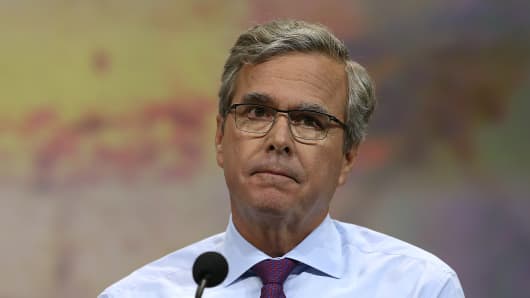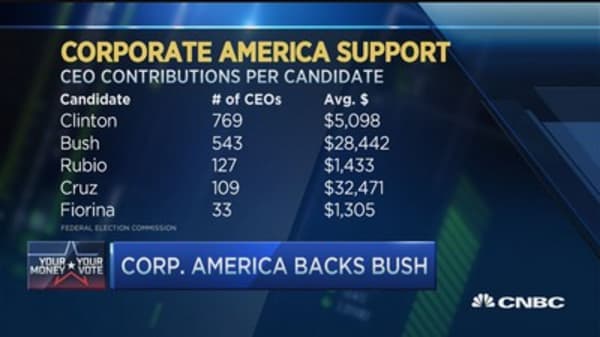The data come from Fluent, a leading consumer marketing and advertising technology firm, working with many clients including political campaign marketers. Its Political Pulse product is a realtime index, a new approach in polling that has mattered more in this election after notable huge misses by the traditional polling firms.
Fluent's data saw the early rise of Trump and Carson, before the mainstream polls did. Fluent uses the information so candidates can better reach the right type of people, allowing for direct responses to the ads, like signing up for a mailing list.
"Campaigns are trying to get voters to sign up for their email lists," said Jordan Cohen, chief marketing officer of Fluent. "The role of email is very important early in the campaign cycle, primarily to drive donations. Then they use that money to staff up and pay for very expensive TV commercials."
An analysis by CNBC shows that Hillary Clinton, Bernie Sanders, and Marco Rubio are among the most active campaigns running direct response ads.















